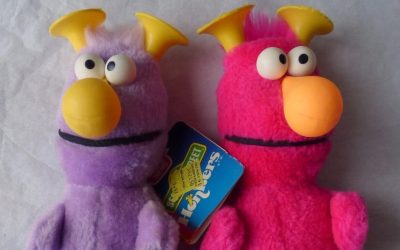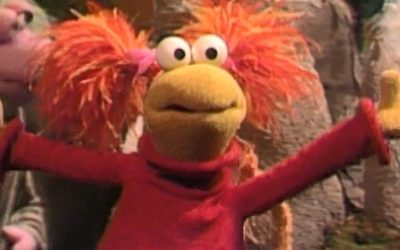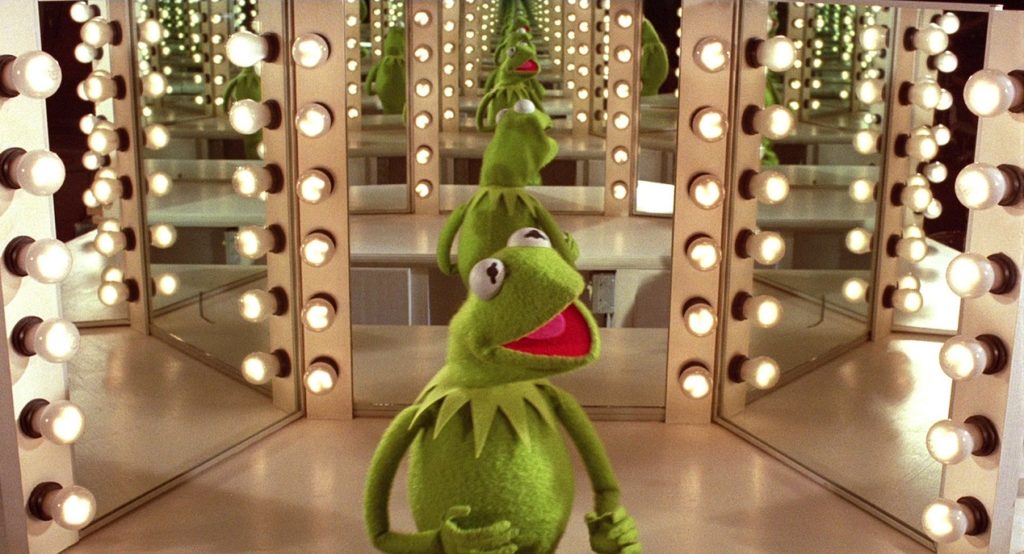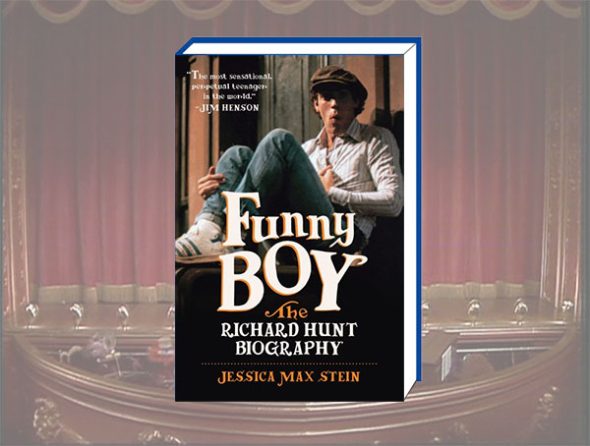
Consider, for a moment, the case of Sweetums and Junior Gorg. Both of them are huge, brown and shaggy full-body costume characters; they’re both a cross between a terrifying monster and a bumbling child; and they’re both played by the same Muppet performer. With all of that in common, you’d expect that these two characters would be more or less the same. And yet Sweetums and Junior Gorg feel entirely distinct, and completely, sometimes heartbreakingly, real. That’s the kind of talent that Richard Hunt brought to the Muppets.
Scooter would open The Muppet Show with a cheery greeting for the guest star; Statler closed each episode with a derisive laugh. Hunt could play the laid-back guitarist and the eternally panicked lab assistant, all of them within the same episode, and a casual viewer would have no idea that all of those characters were played by the same guy, working just below the frame. He was exceptional.
But Muppet fans have never really known that much about Richard Hunt. We’ve known that he joined the Muppets in 1970 and became an essential member of the troupe, that he died in 1992 of AIDS-related complications, and that he was talkative and funny and energetic, and that’s about the limit of the Richard Hunt information that we’ve had access to.
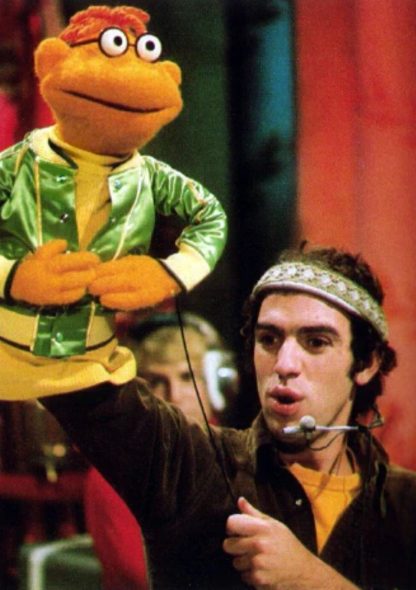
Happily, there’s a new book — Funny Boy: The Richard Hunt Biography, by Jessica Max Stein — to tell us his story for the first time. Stein has talked to close to a hundred of Hunt’s friends, family members, colleagues and partners, and she’s put together a detailed and insightful portrait.
The Richard Hunt that we meet in this book is a slightly exhausting and utterly endearing man, with enough personality for two. He makes friends easily, and charms people everywhere he goes. He loves putting on a show, and he loves connecting with people, and he makes everybody’s life more interesting.
The book presents a full, detailed account of Hunt’s life from boyhood, through his lifelong career with the Muppets. We follow Hunt through his auditions and apprenticeship, working on early Muppet specials and Ed Sullivan appearances, and finally landing a steady Sesame Street gig.
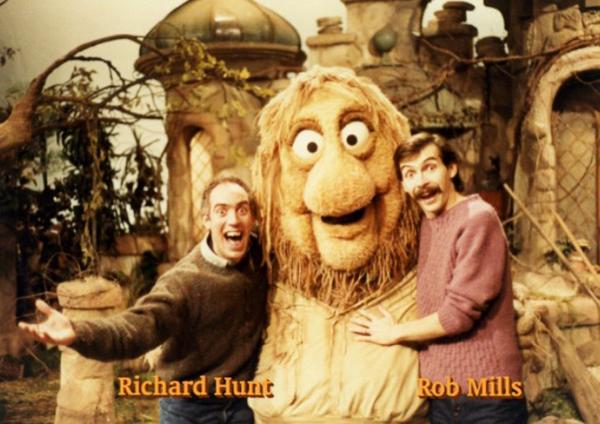
Throughout, the book gives us a backstage pass to the Muppet productions from a perspective that we haven’t seen before, as Hunt moves from Sesame Street to The Muppet Show to Fraggle Rock, and back to Sesame Street to train the next generation of puppeteers. We find out why Hunt’s first Sesame character never spoke, why Hunt would hold onto Jim Henson’s belt loop, why he never really connected with Janice or Gladys the Cow, and why Placido Flamingo was such a treat for him. We see how the relationships between the “Original Five” performers evolved after The Muppet Show ended, and how Hunt formed a bond with Rob Mills to bring Junior Gorg to life. There are gorgeous surprises for Muppet fans all the way through, bringing a richer understanding of the real experience of people working on these productions.
We also meet a lot of the people whose lives Hunt touched. There was clearly a long line of people who were eager to tell Stein how much they loved him, and we see the many ways that he took care of people, both at work and in his private life. One example that comes up a couple times is that Jim Henson was often shy when it was time to address a group of colleagues and cast members — so Hunt would fill in for him, and say the things that Henson found it difficult to put words to.
But Hunt isn’t presented as a perfect figure here. There could be a compulsive edge to his gregariousness and generosity — for example, the book documents his unwavering insistence on picking up the check every time he went out to dinner, which Stein connects to a constant need to be giving, so that he didn’t have to feel grateful, or expose his vulnerabilities.

Funny Boy is sometimes a little awkward and obscure in its coverage of Hunt’s romantic side, but in a way that seems to match Hunt’s own awkwardness in talking about his sexual orientation for much of his life. In the first half of the book, Hunt has relationships with guys, but with one exception, they don’t last very long; usually, Hunt and his latest boyfriend have broken up by the end of the paragraph. About halfway through the book, Hunt meets Nelson Bird, the longest and most important romantic relationship in his life. There isn’t a dramatic “coming out” event, and it’s not always clear who knew and who didn’t, but it’s the nature of the closet to be complex and hard to define. His love life is handled with respect and care, and it enriches the overall picture.
Okay, more cool stuff: even outside of the major productions, Stein brings new and interesting info about obscure moments like the 1977 Royal Variety Performance and the 1982 Tournament of Roses Parade, and there’s great material about Little Muppet Monsters and Puppetman. Stein’s even got intel about the sitcom pilot that Hunt made with Brian Meehl after Puppetman failed, which I don’t think any of us have even heard of before.
HIV haunts the final third of the story, and the book walks through how the developing AIDS crisis affected Hunt, through the loss of friends and lovers, and ultimately his own illness. There are some insightful moments when Stein connects that part of the story to characters that he played, including a thoughtful take on a “Leo the Party Monster” sketch from Sesame Street that I certainly didn’t see coming.
I could rattle on for six more paragraphs, pointing at parts of the book and saying, “Oh, and it also has this!” but I honestly don’t want to spoil the experience of discovering it for yourself. I’ll just say that Funny Boy belongs on the shelf next to Jim Henson: The Biography, Street Gang and the other special behind-the-scenes books that we treasure. Muppet fans don’t get books like this very often. Read this one.
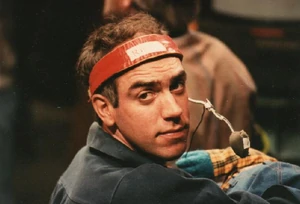
Click here to perform the right hand on the ToughPigs Discord!
by Danny Horn

